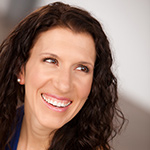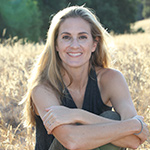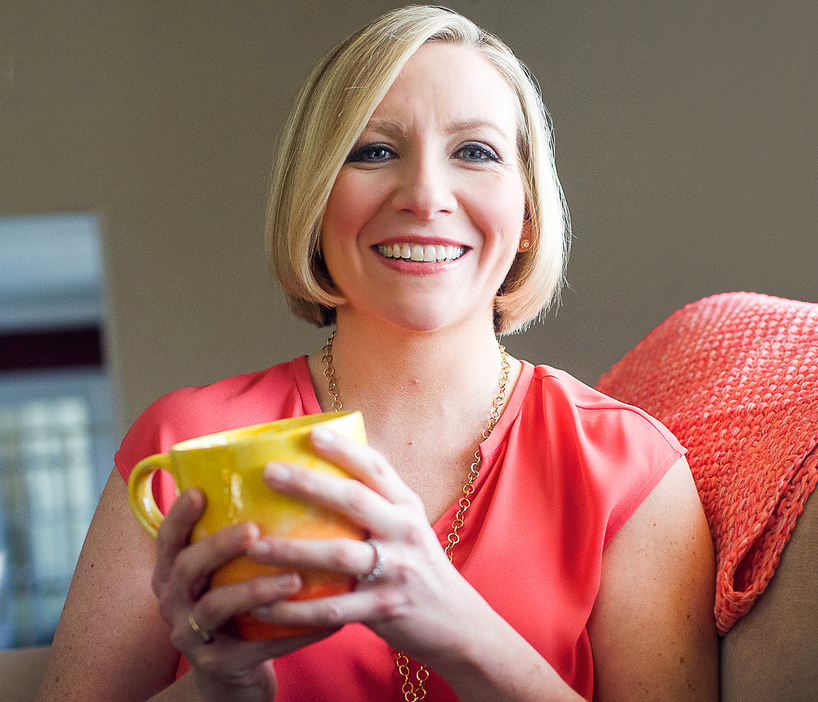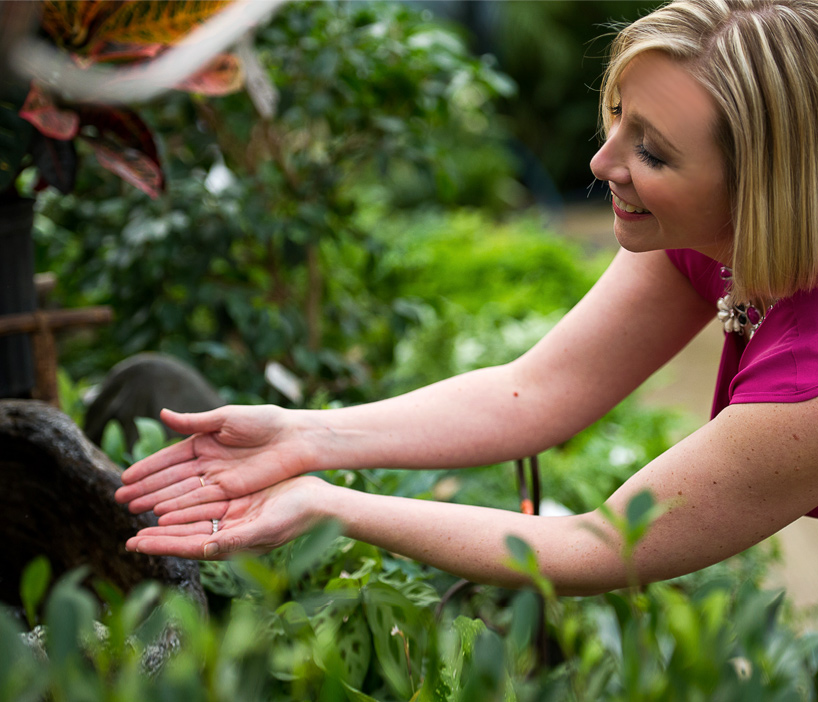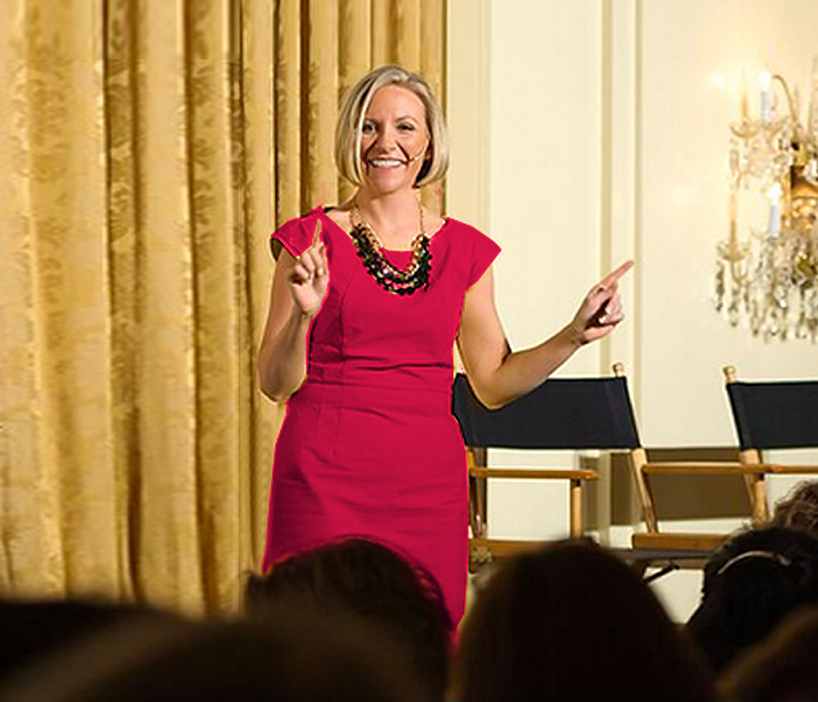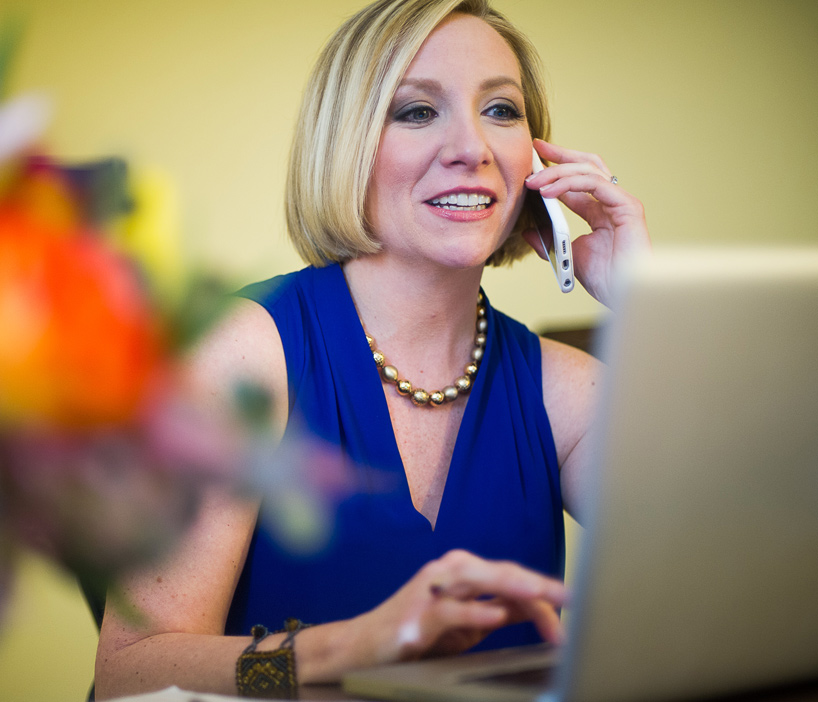Patty has a special guest today to discuss racial justice and inclusivity, and what it means to live in the United States today.
Iyabo shares a bit about her life. She’s bi-racial and grew up in Nigeria until age 16 when she came to the US. She explains that she didn’t know she was black, until she moved to America.
She considers herself a recovering attorney. Hear why she changed careers and the motivation to make a big change. She went to Seminary and realized that her theological background (she explains she’s not a preacher) and legal experience gave her a foundation for the work she does now.
Patty asked Iyabo to explain how she came to understand God and spirituality. She found Christianity from television evangelists when she lived in Nigeria. It’s a fascinating story of personal faith.
Iyabo explains why she doesn’t agree with what is often taken for Christianity in the US. She is a “radical inclusionist”. Each person was created in the image of the Divine and therefore she says that each of us has intrinsic value deserving of love and inclusion.
Ownership is an illusion. This discussion helps to understand why concepts like freedom and citizenry can’t be “owned” but must be embodied. Ownership is often used to attempt to control or dictate to others. Iyabo explains how to recognize how to move from owning to empowerment.
She explains that we need to embrace shared power. We care about those in our community to have less and we understand that we are not in competition with one another.
How can we see others as human if we are so tied up in our identity that we can’t admit when we are wrong, or when we don’t know something?
Patty shares that large social issues like homelessness are sometimes misattributed by the law of attraction. Example: if you are homeless, it’s because you “attracted” it into your life. She and Iyabo talk about how that’s not the case and the shift around what it means to “attract” things in your life.
Understanding your identity will lead you to understand your privilege. Iyabo explains that there are multiple types of privilege and identifying your own will help you understand how it impacts the way that you interact with others.
This episode provides great context for understanding better ways to connect with those who have different life experiences. Her examples are something we can all relate to and learn from.
How can we make the system work for all of us? It’s a great way to think about what we can do to make an impact in our personal place in the world.
Resources:
SUBSCRIBE TO THE SPACE FOR MAGIC PODCAST ON YOUR FAVORITE PODCAST PLATFORM
Apple | Spotify | Stitcher | iHeart | Amazon
Patty 0:04
Welcome to the space for magic podcast where people who are led by their hearts come to learn the secrets to receiving all the gifts the universe has for us. I’m your host Patty Lennon. I’m an ex type a corporate banker turned intuitive coach, using a blend of common sense brain science and just a dash of magic. I’m here to help you create abundance in every area of your life and business. Welcome.
Hey there welcome to this episode of the space for magic podcast. I’m your host Patty Lennon and today I have a special guest with me. Now, when I originally recorded this episode, I had intended to have it run later in the year. It was part of another series I was going to be doing. But as we completed the interview, I realized that this really was so important to run it as we’re heading into July 4 weekend here in the United States. So my guest today is Iyabo Onipede. She is a facilitator, speaker and consultant who curates deep dives into the heart of inclusion, equity and racial justice. She’s an effective community builder and seasoned equity consultant with a commitment to creating spaces of belonging Iyabo’s Work opens pathways for organizations to build just an equitable environment throughout education, experiential, and guided self reflections and the facilitation of challenging exchanges are high touch customized workshops use compassion, storytelling and education for participants to shift identities into mutuality and accountability, while creating and sustaining spaces of belonging. And I think as you listen to this interview, you will hear all of that inside the discussion we had ourselves. When I had originally invited Iyabo on. It was in the context that we had met years and years and years ago, in the law of attraction world. I was first stepping onto the path. And we met in a shared chat room. And we knew each other in a completely different context. And so much has changed since then, my beliefs around Law of Attraction I know Iyabo’s have as well. And that was where I thought this conversation was going. But really where we got into also was conversation around, you know, what it means to live in a country and, and for you outside the United States, I hope you’ll find this helpful as well. But this really was focused on us living here in the United States. And what that means, especially when it comes to racial justice, so welcome,
Iyabo Onipede 2:43
Iyabo. Thank you, Patty. I am so excited to be in this space with you.
Patty 2:51
I am so excited to have you in this space with me. So I started off talking about that we did it originally meet through a law of attraction discussion room. And I know your thoughts on Law of Attraction have changed over the years. I know mine have I’ve been pretty vocal about them here on the podcast, and no one listening would be shocked about my thoughts. But I’m curious if you feel like we can jump in there or you. If you think there there’s something that the audience needs to know about you. Before we go there. Go right ahead.
Iyabo Onipede 3:28
No, I don’t think there’s anything in particular the audience needs to know about me. And whenever you put out this podcast, let me know. And if they have questions, they can leave comments and ask questions. And that is totally fine with me. But I’m sure as we talk, there will be explanations that will help guide where the perspective I’m coming from. That’s really the issue, I think, is I want people to understand the perspective I’m coming from. And so I’ll start out with that, which is that I am a biracial. My mother was white American, my father was Nigerian, I was born and raised in Nigeria. And I lived there until I was 16. So I’m deeply entrenched in my Yoruba culture. And then I also live a very American life. And like I tell people, I didn’t know I was black until I came to America, because of my cultural context. So everything I do in my work has to do with culture and race, because of my personal background. So that may give our folks some understanding of where I’m coming from.
Patty 4:42
And you know, before we even jump into the law of attraction, can you say a bit more about me I know what you mean by but for the for the audience, that you didn’t know you’re a black until you were living in the States because, you know, someone might think, was it that race wasn’t discussed or that it meant something different where you came from? Talk to me about what that means for you? Well,
Iyabo Onipede 5:07
in that context, there are no black people put it that way in that, if I see someone and I’m trying to tell you, Oh, they’re five people across the street, and four of them in American terms are black, and one of them is white, I am not going to say, oh, that black man standing next to the white man, I would never say that there are only white people there only the other, that our default is black. So there are no black people. Does that make sense? They are white people because they’re different. So we use white to describe them. But we would never use black to describe black people. And we can we can look at you and tell what tribe you’re probably from what ethnic group, you’re probably from, just based on your features. And so we would use that language more than the issue of race. So when I say I did not know that I was black. My parents, it was very clear that in America we just had Loving Day, which is the day that interracial marriage was, the Supreme Court said that it’s okay. We just had that day, what a couple of days ago. And I knew my parents had had issues in America as an interracial couple. But in Nigeria, I was defined as mixed race, and Yoruba. So I think of myself as an African woman. But because we don’t talk in the context of race, but we talk in the context of culture. When I came to America, I went to the international students meeting at my college, and they were speaking Spanish, and I couldn’t I didn’t understand Spanish. So the Black Students Association, when they were having a meeting said, come on to the Black Students Association meeting, I said, Well, I’m not black, and they got so mad at me. But I said, I’m not black, meaning I am not African American, because I thought it was only for people of African American descent that were called black. I didn’t know that me as an immigrant from Africa would be considered black. I thought I’d be considered African or biracial.
Patty 7:39
Yeah, so there was a filter, a context that you came from that suddenly shifted when you came to America? Would you consider yourself a recovering attorney, and now a racial justice educator, tell me or tell the audience a more about why you do that work now?
Iyabo Onipede 8:04
Oh, my goodness. I do this work now because I got to a place of burnout in my legal career. And you know, I had one of those spectacular life crises, midlife crises, and so I ended up, you know, changing careers doing something different. And I realized that I hated the practice of law because it’s so adversarial. Yet, I did it for so long. It’s such a beautiful training in so many ways. I feel like I’m still recovering from the effects of being that adversarial person. And when I I ended up going to seminary, and I, nobody’s preacher, I went to world class seminary at Emory University. But I was super clear. I, nobody’s preacher, I didn’t want to be a cleric. And I ended up discovering where my legal training and thinking meets social care, to creating compassionate communities. That’s what I do. Right? And so that’s how I got into this work is through that theological background. And
Patty 9:22
when you were getting your masters in divinity, or is it theology, divinity, okay. When you were called in that direction, and you didn’t consider yourself a preacher, what did you see yourself being was it a community leader, or, or was there something?
Iyabo Onipede 9:43
I went for the learning I, my parents were atheists. I came into Christianity and on the TV watching TV in Africa, is how I came into Christianity. And I always had this faith life that was rich, but You’d never quite fit with everything else because I’m just the rebel like that. And so I went to seminary out of this crisis and like wanting to put just get my head back into the game of life. And I ended up falling deeply in love with theology, and just, it just helped me frame a spiritual understanding of my life. You know, I went, I was almost 50 When I went to seminary. So it really my life experiences were my place of reflection theologically. I went for the education, I went for the community, I went for something new I was looking to do. And
Patty 10:46
I just want to take a step back for a second because this is really just startling to me. I did not realize your your pathway to Christianity was the television. So. So your parents do not believe in a like when you say atheist, are you saying like a very exact description of that mean? They don’t believe there is anything? Like there’s no divine? There’s no. Okay. And you grew up with that belief?
Iyabo Onipede 11:17
No, not necessarily. So my father, my father was the dominant man in the household, like, total alpha male. He was a rebel. His father was a Methodist preacher. And he despised formal religion because he felt the masses were drinking the Kool Aid for lack of a better term, and that it didn’t allow for individualism and personal responsibility. Because you just say, Oh, the devil made me do it. Oh, that’s what God decided. And so he felt Christianity was a religion, because he grew up in both Christian and Muslim context. He just felt it was just a sham. And I never went to church. But my grandpa, the preacher was my only grandparent, my main Iyabo means grandmother has returned. The Yoruba believe in reincarnation. And I am the first female born into the family after my grandmother died. And so I am the embodiment of the family’s female energy. That’s how it gets kept in the family, right? And my grandpa was my only grandparent alive in my lifetime, and his last grandchild, and he would sit me on his lap, and he will say, don’t listen to your mother and father, they’ve read too many books. Because my father had a Western education, he came to America to get his PhD. So my grandpa would tell me, don’t listen to your parents. They’ve read too many books. They don’t know anything. Jesus is real and I’ll be like, Yes, grandpa. And so seven, eight years old. I would pray that there’d be electricity on on TV so that I could watch TV. On Sundays. We went swimming earlier in the day as a family and then come home, and I’d be praying for electricity. And then at five or six o’clock, the TV would come on and Oral Roberts or Rex Humbert would be on. And I would move the living room table and they would say, say the center’s prayer and touch it the TV. This is a point of contact and honey, I’d be so saved every Sunday, I got saved. So when I came to America, I was like, I need to go to church, I need to find this Jesus. I couldn’t find him in my house. I only found him on the TV. And so that’s how I got into Christianity.
Patty 13:55
That’s amazing. So do you feel now where you stand with all of the education and personal experience and real life? practicum? Is the Jesus you were introduced to when you were watching that TV? relevant to you today?
Iyabo Onipede 14:17
Oh, absolutely. Absolutely. I have. I, you know, I hate with a passion. What is happening in America right now. A lot of people think Christianity means quote, unquote, the evangelicals. And really, it means to me, Christian nationalism, which is nowhere in the Bible. The aspect of Jesus that is so appealing to me, is this community builder, this community fixer, this lover of humanity This love of the broke rules, this divinity expressed in human form that modeled for us that this is what God wants us that God meaning, the unknown, the divine creator of this creation. I am so enamored with the fact that divinity loves us so much, Patti so much, we can never finish breathing all the air that is available. Ever. Never. That’s the kind of divinity, I believe in a benevolent, accessible divinity. That’s within and without? And is that well, first of all, and you can take this, you know,
Patty 15:58
you can believe it or not fully. But I talked to Jesus all the time. And Jesus was here, and, like, See, she gets me.
Iyabo Onipede 16:09
Randy, I mean, we have all these rules I and stuff. And I don’t know, I don’t know. I tell people, I came from a tradition that says, homosexuals are sinners and are going to die. Right, and God burn in hell for all eternity. I don’t see that in the Bible I’ve read now. And I also know that my job is to love. I don’t get to condemn, I get to love. And yet we use the scriptures to just advance our own causes, instead of going through that really, really hard thing. You’re scared up to love what you have labeled unloveable. No,
Patty 16:52
we don’t get we don’t have that luxury. And let’s shift gears and talk about racial justice and racial healing. But yes, before we go into why you do the work you do, to me, a lot of the white problems, you know, the problems of white supremacy and the patriarchy really have been sort of cultivated and further holding the cross. Like, I think that the that Christianity, white Christianity has really been the force that people that I don’t agree with, have utilized to sort of put forth this white agenda, right? Yes, yes. So, you know, as someone who has found, you know, in her heart that that you are a Christian, and that that’s what you feel aligned with? Does it create a conflict inside of you? Or is your experience of Christianity? Without that feeling? You’re not feeling any attachment to that other type of Christianity? I
Iyabo Onipede 18:03
can? No, I’m very, very embarrassed by my fellow Christians many times, right? And I do feel so one of my guiding principles in life is inclusivity. And I’m talking extreme inclusivity. So the Christian nationalists, I feel pissed off mad, I can write all kinds of things, I can challenge them and articulate it flawlessly. What my spiritual job is to experience a moment of gratitude for them showing us that that is not the way to go. If they didn’t express it, we wouldn’t be talking about it to say, Is America a Christian nation? Right? We wouldn’t be discussing that. Right? Well, so the fact that they highlighted helps us have valuable conversations that help us define who we are. And to me, that’s where that’s how my inclusivity works. It doesn’t mean that I have to accept everything you are and what you do, but I can find something to appreciate in your very existence, because the original intention of your existence, you were created in the image of the Divine, so you have purpose, you have value, and I have to find something valuable that I don’t get to condemn you. And
Patty 19:39
where does that intersect with racial healing?
Iyabo Onipede 19:44
racial healing, it’s a spiritual issue to me. I mean, when I work with clients, I don’t necessarily call it a spiritual issue, but it’s a spiritual issue to me because white people They are in bondage to white myths. And a lot of people of color are also in bondage to whiteness. So let me do some defining of words. So we understand what we’re talking about. When we talk about white and black, we’re really not talking about skin color, we just use skin color to as an easy shortcut to talk about some of these things, right. So when I say whiteness, whiteness is the culture that says, give up your European ethnic identity of Italian, Irish, Welsh, Scottish English, and become this American, because everybody that immigrated here, had their own cultural identity that they lost within one or two generations to be white American, right? And this white person identity that you’re moving into, we are the best in the world. We are world leaders, we are the best, we are better than anybody else. And we have to do everything in our power to preserve this white culture, aka whiteness, because we’re the top of top of the ladder. Think of it as patriarchy, same messaging. Okay,
Patty 21:24
so before we go on, because I want to make sure I track to your definitions. Years ago, I was in Ireland, like as a student studying in Ireland. And somehow I answered a question saying I was Irish. And the other students around me got very angry with me and told me I was not Irish, I was American, and that they were Irish. And that meant two different things. And so I would imagine if I was in Ireland, right now, I’d have a similar conversation with the same people. So do you consider like those people to be white? In the context that you’re talking about? Yes, and no, when America is a derivative of Western civilization, and America became a world leader in western civilization, right? So whiteness in America is a subset of the white western civilization. And because America has been the greatest country in the world, and data, data, data, is why the whiteness is even more profound. So yes, slavery existed in Europe. Yes, Europe colonized all of Africa, except for Ethiopia. Yes, those evils of dominance, and we have to be at the top of the ladder, and we are superior. It originated out of Europe. But it didn’t have the capitalistic intent that American whiteness has. My experience is on American whiteness, with the base of capitalism as the root problem. Got it?
So when you talk about racial healing, what are you talking about? What exactly does that say for your definition? Yeah, so
Iyabo Onipede 23:29
good, because my brain can go all over the place. So thank you for bringing me back to that. No, no, I
Patty 23:34
took you. I hit you in another. I took you on my little side. Side road. Yeah, but you’re on track girl.
Iyabo Onipede 23:43
So I believe, you know, my mother was half Polish Jew, half Irish American, her grandmother came to America at age 16. And work to bring her other siblings to the US. And I got to know and love and was nurtured by this white woman who moved to Africa, blond, blue eyed, moved to Africa and lived in Lagos for like 36 years of her life, and really integrated and adopted her husband’s culture in the most respectful way. So my understanding of white people was extremely positive until I was forced to accept American reality later on after I’ve been here a long time. So I got into this work doing intercultural competency work, and people didn’t want to talk about that they want to talk about race. So that’s one what pushed me out of leadership development and intercultural competency into racial justice. I also see the harm that white People have to the psyches and the spirits by being forced to be the top of the ladder. So like Toni Morrison, Mama, Toni Morrison said, if I have to kneel, for you to feel short, then you’re the one with the problem, not me. And it’s that kind of thing. If your position as oppressor, right, can only be because they’re oppressed people, then for you to be there, the label of oppressor is just the other side of the coin of oppression of the oppressed. You are as much in a bind, as the oppressed are in the bind. And so we have to change the nature of the dance, we have to move away from power over dynamics to share power, and community building. And I think I’ve really just got to a place especially within seminary, where, honestly, and I feel so guilty about this, I’m gonna explain why Patty, I have such compassion for white people. I really, really do unlike, but do you even know who you are? And of course, not all white people and blah, blah, blah, right? Do you know who you are? Are you living the fullness of your life, when you are constrained by this position, that you have to be the top of the top person as a white person. It’s like, you know, a king son, who doesn’t want to be a prince wants to go be an artist, but can’t, because he’s constrained by the title of his, you know, lineage. That’s what I feel is a problem for white people, I say, I feel guilty about it. Because I feel that I should be building communities of color. And because I still feel like an outsider after 40 years in this country, I feel like that’s not my place. So as much as I support black women’s work, bipoc people’s work. I feel like I all I can do is really support not that not my primary audience. I can understand
Patty 27:25
why you’re saying, I think what you’re saying is you feel guilty, because how do you make the biggest impact around this issue? If the people you’re sort of helping? And I say sorta because I think you’re also facilitating transformation, which is so much more than helping are white people. Is that am I understanding that right? Okay. Yeah. Before we go any further, I do have a curiosity, which is, do you ever wonder what your life would be like at this age if you had not come to America to the United States?
Iyabo Onipede 28:05
Oh, you see, yes. And no. First of all, I recognize that, Lagos, Nigeria in the 60s and 70s. I have romanticized and fantasize that experience into this picture of idealism. We have incredible problems in Nigeria, a Catholic church was just bombed last weekend, and I think about 70 Something people were killed. There’s a lot of battling between Islamic factions and Christians and political unrest. And this is part of the heritage of whiteness. In the late 18th century, countries were carved out based on which colonial master had the most work, trade influence in a certain place. And so the outline of Nigeria was just arbitrarily drawn up. In the meantime, Nigeria, we speak over 3000 different languages, just think about the issues were hearing about Ukraine and Russia, and Kiev vs. Kiv. Right, if you know what I’m talking about, and how, you know, when you live together and your route language is the same, but you’ve evolved into a different identity. That’s all of Nigeria, and today, we’re about the size of the state of Texas. America has 320 million people. And Nigeria has 200 million people in the space the size of Texas, I II fantasy yovel fantasy, but one of the pluses is we are very open about class and how class is a factor in our country. I think because My father status and the class factor that I probably would have felt more, more of a sense of belonging. At my age now I’m just starting to settle into something I’ve heard my whole life, which is, yeah, but you’re a mixture of too many things, you’re never going to belong 100% anywhere. And I think that would have been the place I’m most belong. But last time I went home, I was called White, would I really have fit in? I don’t know. But I know I have an incredible fantasy of what my life could have been like there. And that fantasy helps me write and create scenarios that I gleaned from to do my work now. And then we still don’t have 24 hour electricity. And that’s why I continue to live in the States. The convenience of it, you can’t beat that?
Patty 0:00
I think there’s something to be a Yeah. There’s something to be said about the fantasy. I mean, I I fantasize about what it would have been like for my children if electronics hadn’t existed, you know, like just a simplicity. So I mean, there’s value in that. And that’s what I meant, like, do you picture what your life would have been like, had you not understood the definition of what it means to be black in the United States? Like, if that wasn’t inherent, and now, part of your life experience,
Iyabo Onipede 0:30
I do not have any regrets whatsoever about being black. It is one aspect of my identity that sits right there next to being biracial. Both are true, because I’m in a different cultural context here. I probably would have had more gender issues in Nigeria, than racial issues like here, where people would be like, No, you can’t do that you’re a woman. Right? I think I would have had many more constraints about that. And that wouldn’t have felt good. But yeah, you, you saying something, you are really saying something to me about? How would that have been different from me? That’s real.
Patty 1:22
And because it’s in the core of the work you do now, that was that moment, when you found out that being in a different place, may do something different because of that context. And now your, your entire work is based on healing. That, what would you say it’s healing the context? Or is it healing?
Iyabo Onipede 1:46
The pain of the entire work is about building communities where people feel whole. I think one of the gifts that I’m endowed with is that I understand this American individualism. My father was one of the first Nigerians to get a PhD in America. And he got it from Columbia University, when his peers were going to Europe to get their education, they were going to England to their colonial masters. He’s like, No, I don’t want to go to England, I’m going to America. And he goes, he goes to the American embassy, and begins that process. So that was that individualism that he taught us from my culture is communal. And he also taught us that with capitalism, and I call it hyper capitalism as our context because I am a capitalist, I like making money. I like the comforts money brings with hyper capitalism, the competition is too much. The competition is a fake form of competition, that now causes us to feel deeply isolated, and not connected to each other as human beings. And we prize independence over interdependence.Those are the things I’m healing and healing communities or offering communities, new perspectives to build and heal themselves.
Patty 3:27
I love that when you were originally explaining whiteness, and this brainwashing the happens of you’ve got to be on top there’s nowhere else to be you gotta be going for the top or be on top.How does that play into racial healing?
Iyabo Onipede 3:49
Okay, let me give you a beautiful example. Golf Cham BHEL ch E M, pork, and I tend not to use names and point fingers but I think this one’s important right?
Patty 4:01
Oh god, I’m getting sick because I know where I saw you post on this go for it. Oh my god, this is so wrong.
Iyabo Onipede 4:10
What’s his perfect example Is it is it is it is Go ahead. But Mr. Ted Harris, very nice looking middle aged white man is the CEO of Bochum Corp, and he filed a trademark attempting to gain exclusive ownership over the word June teeth in connection with flavor enhancements to place an ice cream, baked goods dessert, so any food stuff that’s made there wants to bear the name June teeth. His company has the exclusive trademark. Now. They have abandoned their application because folks got upset about this. This is what I mean by this. Absolutely. Nice looking guy wants to make money for his company by any means necessary, and somehow does not understand. Juneteenth is about liberation, and freedom, and doesn’t understand. You see, this is the problem, this is what we have to heal from. You cannot own people, you cannot own other people’s ideas, you cannot own Other People’s Liberation. You cannot own people. This is still a form of owning people. For you to feel a need to own juneteenth. You need a lobotomy.
Patty 5:46
I am truly with you on that. I was. Yeah.
Iyabo Onipede 5:53
Hello, I really don’t want I’m not trying to shame this guy or call him out. I mean, he probably was doing what naturally came to him. And in the pursuit of keeping his business viable, probably thought, Man, I’m so glad I got that idea. You know, I’m the first to file that. I mean, I can just think of 1001 reasons that he thought this was totally okay. But and if people didn’t know, he would have had it. If these black women lawyers did not figure it out, you wouldn’t have abandoned his stuff.
Patty 6:32
Right? Yes, it was fear of whatever PR backlash he would get that stopped him. The thing that I, I want you to tell me more about is when you say you can’t do this, you can’t, you know, own people’s identity. And basically, you can’t do this trademark, really. But I mean, literally, he could you know, like if you were to take the literal can, if he had, you know, if he didn’t abandon this, and no one noticed it was going on potentially, a year from now he could be sitting there with that trademark. So when you’re saying you can’t do that, what are you referring to meaning you can’t do it without losing your soul, you can’t do it without harming you can’t how? Talk to me about that,
Iyabo Onipede 7:24
you lose your soul in that process, you’ve lost the possibility of a relationship with an entire community. Because you see that community is putting money in your pocket that is transactional. When you see me only as a transaction, and you don’t see me as human, then the only way we can engage is transactional. And for transformation to happen, there has to be a transaction in the middle because the transaction is what causes the exchange that causes the transformation. That is the foundation of a transformation. So when you try and own June 18, that is all about liberation and freedom. And you want to own the trademark on food and stuff. You have reduced the American concept of freedom to something you can own, which you really cannot own it. Okay, you may legally own it, but it can never be yours. Because you’re not offering that freedom to other people. You’re saying I can contain it and put it in a box. It reminds me of Do you have pets, Patti? I do not. I only I had two children that poop and pee. And that was the end. I don’t want one more thing that can prove impede but go ahead. I’m sure that’s where you weren’t going. Well, do you own your children? No. Okay, God, did they come as books to be written or books to be read?
Patty 9:11
Yes, you and if you if anybody who’s ever had a cat, how to you go to work every day to buy food for that cat and clean her kitty litter? You don’t own that cat. You have the honor of serving her? Yes, yeah. And a cat will make that super clear. No more than a dog. But my point is that ownership is an illusion.
Iyabo Onipede 9:37
You know, the even the land that we own. You can control the weeds on the law. You could put all those chemicals on it all day long. There’s this thing of ownership that’s like supposed to build us up as having assets and more and now you’re big man because you know, you’re the richest person in whatever town do Whatever that is empty, that is not who you are. You don’t get to take those things to the grave. Those are not the things that help you truly influence people’s souls to connect with them. And so we live in this culture of ownership. More is better?
Patty 10:21
And Iyabo, what is the counterpoint of this experience that we’re in? What does what does it in an evolved or a healed state look like?
Iyabo Onipede 10:36
Okay. So let’s talk about power. They’re different forms of power. People talk about, like the power within wake up in the morning, the power, I wake up in the morning, I do my morning devotion. And I feel connected with the greater world. And that’s my power within. And so when I’m driving down the street, and somebody cuts in front of me, instead of calling them names, and given them a finger, I’m like, Ah, not today. Right? That’s power within, because I’m feeling gathered. And together, and I can exercise compassion in that moment, the power to is the ability to do something, that’s the ability to go vote, the ability to make a change in my community, the ability to run for office, where I feel empowered to for improved community, right, and to actually benefit others, as well, as sometimes yourself like, I was empowered to go back to seminary, even though I felt like my brain was rusty, right? That was a form of empowerment. And then you have what we call power over. So power over is you doing 90 miles an hour, zooming down the highway, and the cop stops you, the cop has finite power and Brene, Brown does a good job talking about this finite power to say you would do an X number of miles, Here’s your ticket for X number of dollars, right? He has been positioned with the authority over the process of giving tickets to people who are speeding, when he considers power over his own personal power, then he abuses it and becomes the cop that killed George Floyd. Got it. Shared power is where we need to go to. And shared power is me saying I have oranges, you have apples, the other person has butter, the other person has flour, let’s come together and bake this amazing cake that feeds our community. And I’m not jealous of your apples, because my oranges coolest pick your apples coolest, you may have 55 apples and I may only have you know, one tablespoon of, of butter. But it’s going to be sufficient for all of us. We’re not in competition with each other over every little thing. We care about those in our community that don’t have, we understand the correlations between interdependence, like, folks are homeless in Atlanta, because housing prices are almost the highest in the country in Atlanta. And they are responsible people who are not having mental health issues, who cannot afford a $2,000 a month apartment, because they don’t make that kind of money. And they are going to become health liabilities. Because if you live on the street long enough, you are going to have some mental health concerns.
Patty 13:53
None of us are immune from that. So my neighbor is that homeless person as well as the person living next door to me. And if I don’t see myself in that homeless person, that person experiencing homelessness, if I do not understand that I’m probably two or three steps away from that person, that I’m not living in community. And I’m not sharing what I do have to be resourceful. And I’m not saying let the person come in and start sleeping in your guestroom. No. But what are we doing? For those pressing issues in our community? That could be us. And what happens when someone doesn’t know they just don’t know what they can do? They feel helpless.
Iyabo Onipede 14:49
Ask questions. You see, that’s the other part of whiteness, you have to know. And you have to be right. And you cannot ever admit Making a mistake. Right? You cannot admit to being human? How can you see my humanity? If those hidden rules are powering your hedonic treadmill of life? How can you see me if you can’t even admit your mistakes? You can never see me as human. Go to a city council meeting and ask questions. Go online and research. Follow the breadcrumbs. How what first us in Atlanta, part of what happened. Very broad brushstrokes, companies, big companies are coming in and buying properties and shooting up the prices of properties. Atlanta is a great place for like conventions and things like that. And so many houses are air b&b that people cannot afford to buy houses. Rent starts at about $2,500 in Atlanta for a two bedroom, two bath.
In average neighborhoods, not fancy neighborhoods. And homelessness is such a huge problem. People are living out of their cars, people are sofa surfing, I mean, there’s so much going on with it. And this is my community. My so my my what I do is a friend feed does stuff to feed the homeless, we give money, and we give closing and blast out what they’re doing whenever they’re doing stuff. So I’m not in the streets there as a street warrior addressing this issue. I know people that are and I do other things to support them as they doing it. But all I’m saying is be aware that this is your neighbor. Yeah, yeah, no, they are not those people. They’re not a threat. These are your neighbors, right? Even though they may live 20 miles away.
Patty 17:03
And you and I were having a conversation before we start recording, this could be a good transition point, which is about law of attraction. And I think this is a is, you know, a direct result of the white teachers of law of attraction. Or maybe not even white teachers, but whoever the teachers are, they’re teaching from this white perspective, maybe that’s a fair way to say it, that, well, then that person attracted it, you know, I don’t believe this. And for those of you listening, but this we were actually talking about this before we start recording that a lot of the manifestation teachers out teaching out there can say, well, you attract what you have. And so if you’re homeless, you attracted that, and so that gives me a card a permission card to not have to worry about it. And
Iyabo Onipede 17:57
I think that’s where you and I agree that you know, law of attraction, that manifestation world gets really toxic really fast. But what else would you say about that? Because when you recount that conversation, what are two things come to mind one, I want us to label that I want you to entertain this label of how if you are interpreting any spiritual dynamic or something like the law, like law of attraction or anything through this lens of hyper individualism, then you are going to only see it a certain way. Whereas I think that if, like, let me give you a story, I don’t have children. I had a lot of all I can call it as misfortune, several miscarriages, you know, divorce, blah, blah, blah. I’ve never got to bear children. And if you know me, you’ll be like, Oh, my god, Iyabo’s the most motherly person in the world? How does she not get to have children? Right? And if you know, like I said, that was one of my most painful things. So this older gentleman friend of mine from Nigeria is a big scholar. He died just about a year ago, he came to town and we spent some time together having dinner. And I call him Dr. Lucas. And Dr. Lucas said to me, as we will walk into his hotel, he’s like, 90, okay, this was he was about that age when this happened. And he said, Sweetheart, do you have any regrets? And I was like, I just wish I’d had children. We’d have all this wonderful, erudite conversation that goes all over the place. I said, I just wish I’d had children. And that’s something that still breaks my heart and he said, Oh, darling, don’t you remember, we stopped under the chandelier was one of those magical moments where you know like this
Sheraton downtown or something, we stopped under the chandelier. And he holds my face in his cheeks and says, Don’t you remember. So remember what he said, You told your children don’t come to this world, that it was too wicked, and you didn’t want them to suffer. And so that’s why you didn’t have children, because you love them so much, you didn’t want to see them suffer. And that makes you the best mother of all the mothers. So you have all the children, all the children belong to you. And I got the Boo Boo hooing Oh, my Lord, I wrote about this on my substack. Here’s the thing that is a communal interpretation.
My culture says to me, and gives me the honor of being like my Nigerian friends will call me big mommy, the kids will come in big money, meaning I’m a bigger mom, over all the children, right? Because the culture fills the gap. Individually, we cannot fill that gap. So to me, my personal individualistic healing is making peace with my body. And dealing with the feelings of my body failed me. And I don’t get to have something I really, really wanted in my life. But my culture tells me, Oh, no, there was a reason a better, more uplifting reason. And you are made whole in community, because you’re a mother of all.
That’s the communal lens. So when you’re looking at something like law of attraction, or anything else from an individualistic lens, let’s learn to also look at it from a communal lens and see where we learned I am not not not not saying one is better than the other. I think in certain instances, you want that individualistic lens. And in certain instances, you want to look at things through a communal lens, right. And it’s a it’s a sliding thing, a little bit more to the left a little bit more to the right, you know, and it will be different for each person. But I do think we have to learn communal ways of being so when we’re talking about law of attraction and we say, you attracted slavery to yourself. You attracted a miscarriage to yourself, you attracted that accident, you black person standing in the Buffalo grocery store, you attracted this person to kill you. That came from 200 miles away. Are you precious to Valve the little girl that was green Converse sneakers with the star on it, you were attracted the shooter to come in killed? Come on people. What are we saying with that?
Patty 22:59
Yeah, it’s, um, it’s violent. It’s a violent interpretation of something that I think at its purest form is spiritual truth. But interpreted through that lens of it gets me off the hook about worrying about other people is when a cause toxic? Yes. And do you feel that so this individualistic, and I’m not individualism? Is that how you describe it? ESR to describe individual, I say collective individuality, individualism? Oh, yes, I liked it. I liked the word. It felt, like expressive. So that comes from capitalism, really? I think so. And when we’re looking at racial healing, is it a communal approach to how we use our money just tying together the capitalism piece? No.
Iyabo Onipede 24:04
Now we talk about racial healing starts with the individual. So like, every black person knows they’re black, but not every white person knows their way. So you have to process your racial identity first. And what does this mean? And the benefits accorded you based on your race because we live in a society that accords benefits based on race, gender, hetero normativity, neuro normativity all of these things right? schemee Blah, blah, blah. You have to process all of that you have to come to terms with okay that privilege but privilege is not your identity. Privilege is the tool that you can use for yourself as well as for others. You should use it for yourself. Like I had, and I always tell people slap a word before the word privilege I have
great educational privilege in this country, right? I have a law degree from Georgetown University, I have a Master’s of divinity from Emory University. I mean, you know, that’s educational privilege, and may not have the gender privilege and the racial privilege. I have heteronormativity privilege, right? Or heterosexual privilege, I’m sorry, not heteronormativity, meaning I’m the default, right? I also don’t have gender, it, you know, I’m a girly girl, girl. I have gender privilege as a girl, but not as a male. I also have Christian privilege, which is a dominant religion in America. So I have Sundays off, and not a Jew that needs to have Shabbat on Saturday, and I can’t because of my job or whatever, or Muslim for Friday as a holiday. So those are privileges that I have, those privileges are tools that I get to use. So I get to go do whatever I want on Sunday, if I have an employee, who’s Muslim, I need to be asking that employee, okay, or, you know, your Fridays? How do we deal with Fridays? Because I want to support you in your faith. So it takes me healing and understanding myself and my dominant racial and cultural identity, to be able to have that conversation with a Muslim person. Right? Yeah. And then, in terms of how I use my money, I listen, I love money. I’ve told you all that I’m trying to make more money. Money brings us a lot of comfort. But money is not who we are. Whether you have a lot whether you have a little, you’re still precious and valuable as a human being, how can you maintain that preciousness, regardless of what’s fluctuating financially. And so when I talk about racial healing, it’s on multiple levels, it’s on the personal level, you as an individual, you got work to do on your own, it’s an interpersonal level, in relationship to other people. It is in an institutional level, like in your industry, in your company in your industry. And then it is in a in the structure of the spaces that you live in your local government. Some are more liberal than others. Some are not a very conservative, how do we shift that? For me? It’s about inclusion, how do we shift such things to be more inclusive, and then we have structural racism, and systemic racism, which is the whole culture and how each thing feeds into the other? And how we have to focus on changing those things. All of those things are racial healing, and the output for racial healing, is that Kumbaya, and let’s get along and oh, look, there’s no more racism is that everybody, the Native American, the LGBTQ person, the binary person, the trans person, the Asian person, because we go through a lot of Asian hate today, the Jewish person because of anti semitism, that each person feels a sense of liberation, and lives in community where they belong, and they can be themselves. That is full racial healing. That’s the ideal picture that I would love to see in my lifetime. And I don’t believe that I will.
Patty 28:42
And, yet that you’re walking people in that direction, absolutely. My only goal, Patti, only, I only have one goal, help move the needle. 1% just 1% if I do my work, I do my writing people read. I talk to people, people listening on this podcast, they get something out of it. That’s 1% And then if you do your 1%, and the next person does the 1% That’s all I ask for.
I love that. I
my mind I apologize. Yabba my mind keeps going back to the capitalism thing. So cat so where my my money question was coming from maybe it’s not money specifically, but do you believe a capital A society that exists in capitalism, maybe not hyper capitalism where we’re at right now, but in capitalism can experience complete racial healing, even if it’s not in your lifetime? Or is it that racial healing will naturally shift capitalism to something else? You know, honestly, I’m not an economist.
Thanks for being here and reading my message. I want you to stay connected with me so that I can share all future communications with you.
Please enter your name and email below to join my community.
Success! Thank you for joining. You'll receive a confirmation in a while.

